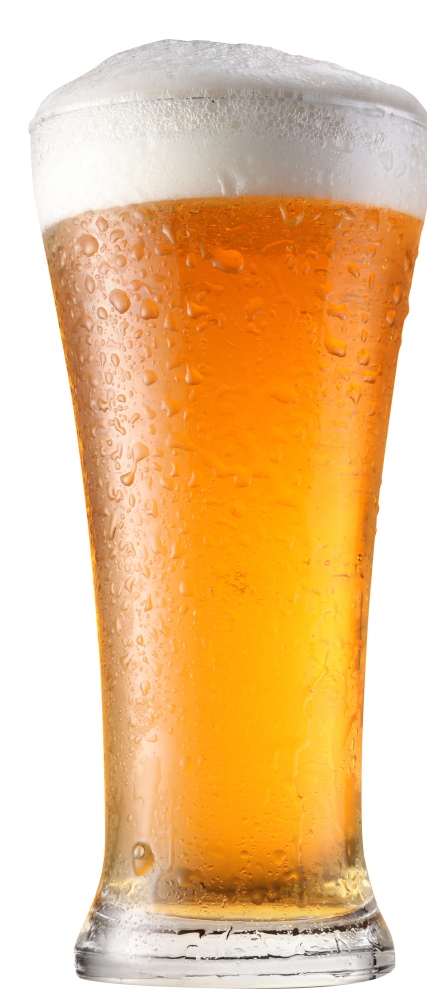Even a company that named its top beer after a hero of the American Revolution may eventually forsake its home country.
Boston Beer Co., the maker of Samuel Adams beer and Angry Orchard hard cider, would be worth more to a foreign owner unburdened by the U.S. tax structure, founder Jim Koch told a Senate committee on Thursday. Because of that, Koch says he regularly gets pitches from investment bankers looking to strike a sale. He’s been turning them down – for now.
“We don’t mind paying our taxes here in the U.S. in gratitude for the opportunities that exist in this country and that I certainly have enjoyed – but don’t mistake that for good financial decision making,” Koch said to the Senate Permanent Subcommittee on Investigations. “Because of our broken corporate tax system, I can honestly predict that I will likely be the last American owner of Boston Beer Company.”
America taxes its companies at the highest rate in the industrialized world. Executives like Koch say that puts corporations at a disadvantage to foreign rivals who can spend more for acquisitions and keep more of their earnings.
There’s a stigma attached to ditching America for tax purposes, but many have decided that keeping their U.S. address just isn’t worth it. Medtronic and Mylan are among companies that have pursued tax-inversion deals in the past few years to move their headquarters from the United States to countries with lower tax rates.
The Treasury Department took steps in September to make it harder to do these transactions, but they’re still possible and companies will keep doing them. Arris Group Inc. agreed in April to buy British set-top box maker Pace and become a British company. Monsanto and Pfizer are considering using acquisitions to relocate abroad as well. A purchase from either could be the largest U.S. tax inversion transaction yet.
That’s not even counting the number of U.S. companies that have been sold to foreigners. Non-U.S. buyers have spent $451 billion on acquisitions of American targets since the beginning of 2014, according to data compiled by Bloomberg. This year is on track to be the biggest yet for such takeovers, with some $205 billion in transactions already announced.
Boston Beer could be next.
“Ultimately, there’s no doubt that that’s what’s going to happen,” Kent Gasaway, fund manager at Kornitzer Capital Management Inc., which manages the Buffalo Funds and oversees assets including Boston Beer shares. “It just makes a lot of sense for a foreign buyer.”
Boston Beer reported earnings after the close of trading on Thursday. The company had about $47 million in pretax income in the second quarter. A dollar of pretax earnings is worth 62 cents to the Samuel Adams beermaker under American ownership, versus 72 cents under foreign ownership, Koch told lawmakers.
While the 66-year-old brewer’s main focus was taxes, Koch’s comments may be a sign that he sees a sale as the eventual fate of his $2.9 billion company.
There have been about $145 billion in brewery deals since July 2008, when Anheuser-Busch agreed to the industry’s largest takeover. The largest surviving brewers after the acquisition flurry – Anheuser-Busch InBev and SABMiller – are looking to buy more.
AB InBev needs a deal to pump up slowing growth. SABMiller needs one to fend off AB InBev. An attempt by SABMiller to buy $45 billion Heineken NV failed. Boston Beer could be a smaller but appealing alternative for either of the mega-brewers, or for Heineken. There’s also MillerCoors, the U.S. joint venture between SABMiller and Molson Coors Brewing Co.
“Boston Beer is an interesting takeover target because of its brands, and also because the antitrust pushback would be very limited as it’s only 1 percent market share,” Pablo Zuanic, an analyst at Susquehanna International Group, said in a phone interview. “There are buyers out there that would line up if he wanted to start taking bids.”
Koch probably isn’t in a rush to sell – and the decision is up to him. He controls the company’s Class B shares.
Now may not be the ideal time for Koch to seek a buyer, Zuanic said. Shares of the company are down 24 percent this year as the company reduced beer volume growth guidance and reported weak sales for the Samuel Adams brand.
“Of course the scenario that he sells at some point is a realistic scenario,” Zuanic said. “Because of what he said, could bankers be calling Anheuser-Busch and MillerCoors and SAB telling them that Mr. Koch may be more interested in selling now? Maybe some bankers will be doing that.”
Copy the Story LinkSend questions/comments to the editors.



Success. Please wait for the page to reload. If the page does not reload within 5 seconds, please refresh the page.
Enter your email and password to access comments.
Hi, to comment on stories you must . This profile is in addition to your subscription and website login.
Already have a commenting profile? .
Invalid username/password.
Please check your email to confirm and complete your registration.
Only subscribers are eligible to post comments. Please subscribe or login first for digital access. Here’s why.
Use the form below to reset your password. When you've submitted your account email, we will send an email with a reset code.